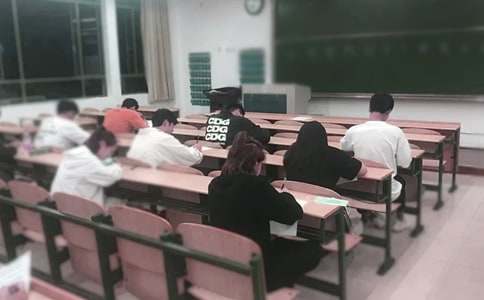- 相關(guān)推薦
2007年職稱英語考試綜合類(A級)試題及答案(8)
第6部分:完形填空(第51~65題,每題1分,共15分)

下面的短文有15處空白,請根據(jù)短文內(nèi)容為每處空白確定1個最佳選項。
Sending E-mails to Professors
One student skipped class and then sent the professor an e-mail(51)for copies of her teaching notes.
Another(52)that she was late for a Monday class because she was recovering from drinking too much at a wild weekend party.
At colleges and universities in the US,e-mail has made professors more approachable(平易近人).But many say it has made them too accessible,(53)boundaries that traditionally kept students at a healthy distance.
These days,professors say,students seem to view them as available(54)the clock,sending a steady stream of informal e-mails.
“The tone that they take in e-mails is pretty astounding(令人吃驚的),”said Michael Kessler,an assistant dean at Georgetown University.“They’ll(55)you to help:‘I need to know this.’”
“There’s a fine(56)between meeting their needs and at the same time maintaining a level of legitimacy(正統(tǒng)性)as an (57)who is in charge.”
Christopher Dede,a professor at the Harvard Graduate School of Education,said(58)show that students no longer defer to(聽從)their professors,perhaps because they realize that professors’ (59)could rapidly become outdated.
“The deference was driven by the (60)that professors were all-knowing sources of deep knowledge,”Dede said,and that notion has(61).
For junior faculty members,e-mails bring new tension into their work,some say,as they struggle with how to(62).Their job prospects,they realize,may rest in part on student evaluations of their accessibility.
College students say e-mail makes(63)easier to ask questions and helps them learn.
But they seem unaware that what they write in e-mails could have negative effects(64)them,said Alexandra Lahav,and associate professor of Law at the University of Connecticut.
She recalled an e-mail message from a student saying that he planned to miss class so he could play with his son.Professor Lahav did not respond.
“Such e-mails can have consequences,”she said.“Students don’t understand that (65)they say in e-mail can make them seem unprofessional,and could result in a bad recommendation.”
51.A.providing B.offering C.supplying D.asking
52.A.complained B.argued C.explained D.believed
53.A.removing B.moving C.putting D.placing
54.A.about B.around C.at D.from
55.A.control B.shout C.order D.make
56.A.requirement B.contradiction C.tension D.balance
57.A.teacher B.instructor C.lecturer D.professor
58.A.e-mails B.passages C.texts D.books
59.A.technology B.expertise C.science D.imagination
60.A.tradition B.sense C.notionD.meaning
61.A.strengthened B.weakened C.reinforced D.consolidated
62.A.ask B.question C.respond D.request
63.A.him B.her C.you D.it
64.A.on B.against C.in D.about
65.A.this B.which C.that D.what
2007年度職稱外語等級考試標(biāo)準(zhǔn)答案
英語—綜合類A卷(A級)
1.B2.C3.A4.D5.A6.B7.D8.A9.C10.C11.A
12.B13.D14.C15.A16.A17.B18.A19.A20.C21.C
22.C23.B24.C25.E26.F27.B28.C29.A30.E31.B
32.D33.A34.D35.C36.B37.D38.B39.C40.A41.D
42.A43.B44.C45.D46.F47.E48.D49.C50.B51.D
52.C53.A54.B55.C56.D57.B58.A59.B60.C61.B
62.C63.D64.A65.D
http://salifelink.com/【職稱英語考試綜合類(A級)試題及答案(8)】相關(guān)文章:
國學(xué)試題及答案02-23
小升初語文測試試題及答案10-17
公司文員筆試題目及答案04-24
大學(xué)計算機一級考試試題及答案12-01
三級安全教育考試試題及答案版04-29
最新自考英語二真試題及答案10-24
考研英語一試題及答案(2)10-18
和老媽過招閱讀答案 語文試題01-10
初中英語練習(xí)試題及答案12-21
四年級下冊英語期末試題含答案06-29